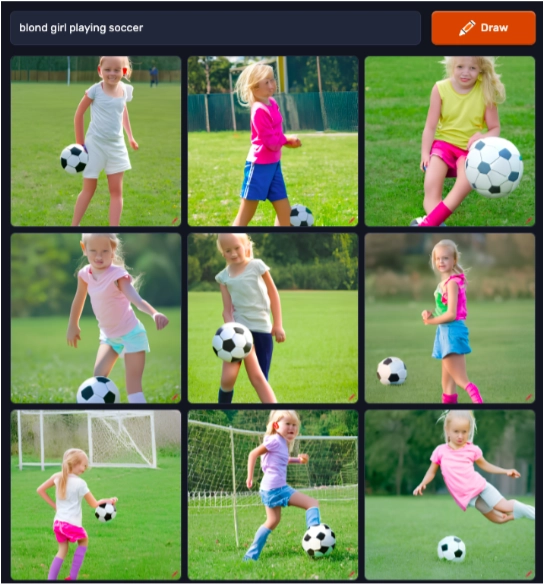Eight Funny AI Experiments to Try Online
Let’s be honest, who would’ve believed 30 years ago that computers can chat like humans and even compose music? Yet, here we are in a world where AI continues to dominate our lives, sometimes even when we don’t realize it. If you want to know what modern-day technology is capable of, various online AI experiments are available to demonstrate just that.
Below, we present eight funny AI experiments you can try yourself online for free.
What is AI?
Artificial intelligence (AI) is a branch of computer science that focuses on building smart machines to reduce human involvement in different processes, such as answering customer inquiries and trading stocks. Advancements in AI include machine learning (ML) and deep learning, which are revolutionizing every industry, from medicine to finance to agriculture.
Get Your Insurance Estimate Today
Most AI applications function through natural language processing, speech recognition, and other systems to provide outcomes. For example, face recognition on smartphones, VR/AR, and funny AI chatbots are all a result of ongoing breakthroughs in AI.
Try Experiments With Google
While AI’s primary purpose is to automate repetitive tasks by building and training models, it can also entertain people. Since the late 2000s, developers have created numerous AI experiments for iOS, Android, and Chrome. As a result, users can explore different websites and try their functionalities with the help of AI.
Experiments with Google offer multiple fun AI experiments to learn or get acquainted with artificial intelligence. Users can browse different collections, such as music and writing, and try out web applications developed using AI for free.
Fun AI Websites To Experiment with AI
Whether you’re a passionate writer, ambitious painter, or love to sing, you can experience the power of AI through fun websites yourself. Below are some applications that allow you to conduct AI experiments online for free:
Pix2Pix
Pix2Pix is a favorite of AI aficionados. This application uses machine learning models trained on pairs of images to convert images from one style to another. Even if you don’t have advanced artistic skills, you can still use the application to generate realistic photos.
Just like other fun AI experiments, Pix2Pix was developed using a cGAN (conditional generative adversarial network). This deep-learning ML model comprehends each line of a drawing and generates a fake output piece by piece, thus completing the image-to-image translation.
FakeYou
It’s astounding how far AI can sometimes go. FakeYou is an application where you can have your favorite characters recite the text you write. It uses a machine learning model to process and replicate voices. As a result, users can generate hundreds of voiceovers to narrate unique content.
FakeYou has more than 2,400 voices that can speak in Spanish, English, Portuguese, and other languages. The app can help you perform multiple AI experiments, including creating voiceovers for videos.
Craiyon
Craiyon (paid) can save you a lot of time by creating illustrations for presentations or projects. With Craiyron, you can type phrases and word associations to create AI-generated images.
All you have to do is to type in a word or a phrase. The more details you provide, the more accurate illustrations you’ll get. The app uses powerful AI and ML models that learn from a large database of images. For example, here’s what you might get when you type “blond girl playing soccer:”

Source: Craiyron
Talk To Books
Booklovers can engage in plenty of fun AI experiments with the following app. Talk To Books allows you to communicate directly with more than 100,000 books. Readers can ask questions and make statements while the AI-powered algorithm searches for phrases in books that serve as meaningful answers to your inquiries.
You can even filter books by categories, such as fiction, non-fiction, history, or art. For example, you may type “Will I be productive today?” and AI will answer with a quote taken from “One Piece of Paper: The Simple Approach to Powerful, Personal Leadership” by Mike Figliuolo: “Your workday will be lacking happiness and fulfillment.”
While a little depressing when taken out of context, you may still be hooked and stumble upon your next favorite read.
FreddieMeter
How well do you think you can ace that vocal riff in “Bohemian Rhapsody”? This next web app will be your judge. FreddieMeter is a fun AI-powered singing challenge that rates your vocal abilities and compares them to Freddie Mercury’s voice.
FreddieMeter was launched by The Mercury Phoenix Trust, a charity founded by Brian May and Roger Taylor to honor Queen’s late lead vocalist Freddie Mercury. The application uses on-device machine learning models by Google Research to analyze your timbre, pitch, and melody and calculates how close it is to Freddy Mercury’s.
AI experiments like this can be a great pastime for a stay-in with friends. The application doesn’t post your audio to any server, which allows your vocals to stay private.
Evolution by Keiwan
Evolution by Keiwan is a vivid example of ML in gaming. This fun AI game allows users to build any type of creature with joints, bones, and muscles and enables the algorithm to learn how to move.
The more you master the mechanics of the game, the more complex creatures you can build. You can then observe how well your creatures survive through generations as they evolve.
Akinator
Addictive to some people, Akinator is a French video game that guesses fictional or real-life characters, objects, or animals that the user has in mind. The app is built on an AI-powered classification algorithm that learns the best questions to ask through its experience with players.
Akinator initiates questions that require yes, no, probably, probably not, and don’t know answers. With the user’s responses, the algorithm filters through a large database of people and objects and narrows down the search as it asks more questions. For example, it may start with “Is your character male or female?” When it gets close to the answer, the questions will be more direct, such as: “Is your character the lead singer of a rock band?”

AIVA
Here’s another fun AI experiment for music lovers. Artificial Intelligence Virtual Artist (AIVA) is an AI-powered website that can compose classical and symphonic music. Based on deep learning algorithms, which use reinforcement learning techniques, AIVA is the first AI tool to be credited as a composer for multiple projects.
AIVA’s music has been used in multiple soundtracks for films, advertisements, and video games. It has also released its debut album Genesis, which you can stream on SoundCloud. You can test AIVA yourself by simply choosing the style, the key, and the length of the music piece, and the website will generate the output in a few seconds.
Sum Up
There are a variety of funny AI experiments you can try online. These AI-powered applications can help you draw, sing, and even be your gaming companion. We don’t know what the future holds, but we can surely say that AI will be a strong player as we move forward.
Try our real-time predictive modeling engine and create your first custom model in five minutes – no coding necessary!
- Fully operational AI with automated model building and deployment
- Data preprocessing and analysis tools
- Custom modeling solutions
- Actionable analytics
- A personalized approach to real-time decision making



